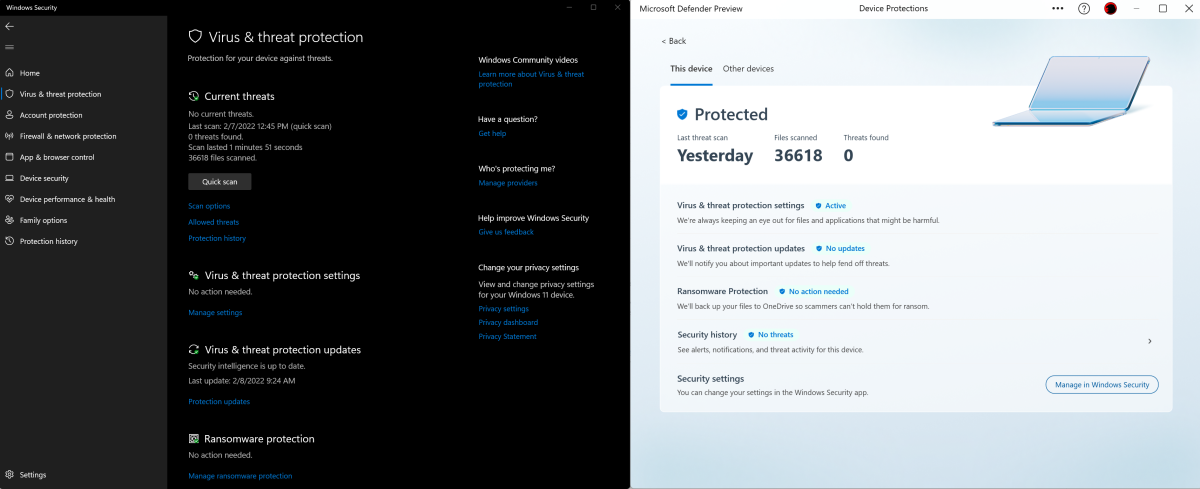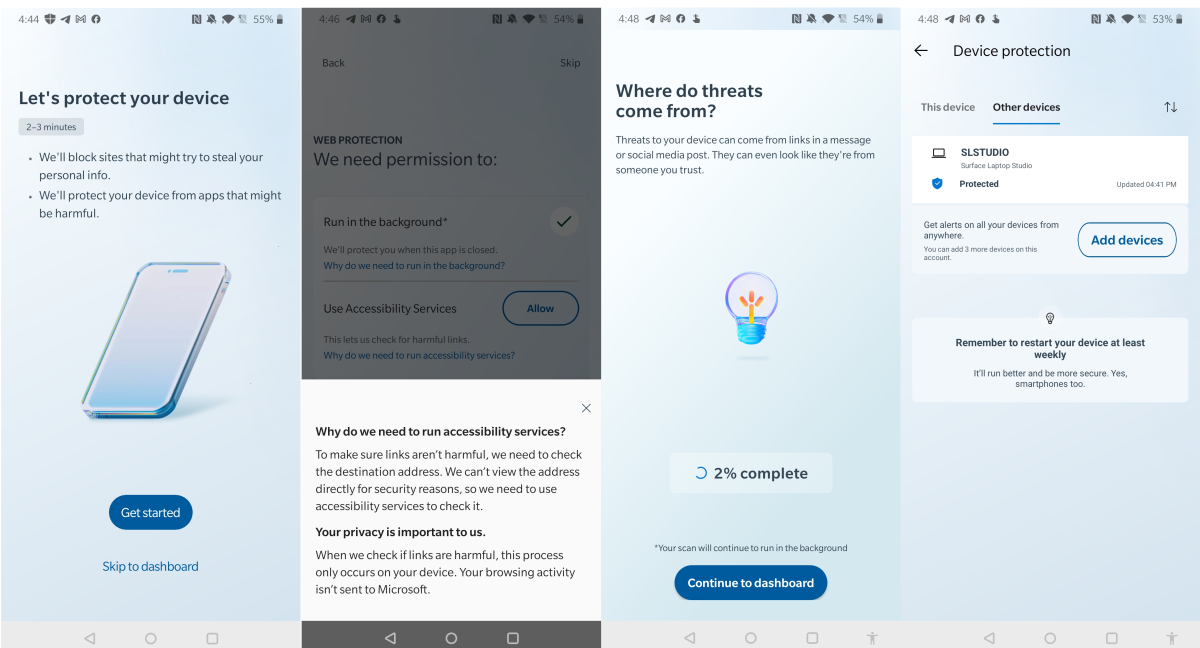 Image: Mark Hachman / IDG
Image: Mark Hachman / IDG
Microsoft’s cross-platform version of Windows Defender, now known as Microsoft Defender for Individuals, is now live: an attractive way to protect your Android phone as well as your PC.
If you merely own a Windows 11 PC, there’s nothing that demands you download Microsoft’s new preview app. It’s quite different, however, if you own an Android phone in addition to your PC. We’d recommend that you try out this attractive, free utility that promises to watch over the files you download on your phone as well as the links you access. (Defender will protect Apple Macs and iPhones, as well.)
There is a small catch, however: You’ll need a Microsoft 365 account to use Microsoft Defender, and it will only protect a total of five devices. Otherwise, Windows Defender can be downloaded here for PCs.

Mark Hachman / IDG
Mark Hachman / IDG
Mark Hachman / IDG
You’re best served by installing the app on both your Android phone/tablet and your PC, as Defender provides you an overview of how it’s protecting all of your devices.
The name itself is a bit confusing, since Windows Defender was previously the name of Windows’ own security system, now renamed Microsoft Security. (Windows Defender Firewall still appears in the Control Panel.) The new Microsoft Defender for Individuals offers antimalware protection for both Macs and PCs, and Android. Defender will also protect against browsing to unsafe sites on Android and iOS, too.
From a PC perspective, Microsoft Defender Preview doesn’t appear to do anything materially different from the Windows Defender that’s already on your PC. In fact, Microsoft Defender simply cleans up the “Virus and Threat Detection” dashboard from the Windows Security portion of Windows Defender and presents it in a modern, Windows 11-ish style. (Pulling out and cleaning up portions of Windows and repurposing them in other portions of Windows seems to be fairly common these days.) We don’t know, however, if Microsoft Defender will eventually replace Windows Security.
On a phone, at least, Microsoft Defender is much more straightforward. Yes, Google and Android work behind the scenes to protect your phone, but Microsoft Defender works to soothe that portion of your brain that seeks visible proof that your phone is being protected. Microsoft Defender sniffs links that you access on your phone to ensure you’re not downloading malware, and also investigates any apps already on your phone to ensure that they’re not known to harbor malware. Naturally, if it finds anything, it will pop up a notification. You also have the option of requiring security data to be shared with the administrator who owns the Family Safety account that the devices are connected to.

Mark Hachman / IDG
Mark Hachman / IDG
Mark Hachman / IDG
Microsoft Defender will ask for permission to access the “Accessibility Services” permission of your Android device, which gives Defender that leeway to examine links. It will also require you to manually toggle the permission switch, something you may not be accustomed to doing. Scans will take place periodically, which will cut down on battery life—but how much, we can’t say. It might be worthwhile to check your Android settings to determine how many resources Defender is consuming.
Microsoft Defender doesn’t seem to be a tool that responsible PC and Android users would necessarily need. But for those pre-teens and teens who have been given a phone to remain in contact with their parents (and may then decide to download apps willy-nilly), Defender seems like a decent safety blanket to ensure they’re not downloading a risky app that could end up stealing their data.
This story was updated on June 16 to note that the Microsoft Defender app for individuals is now live. The story has also been corrected to note that the app also protects five devices, not four, as well as the capabilities of Defender across various OS platforms.
Author: Mark Hachman, Senior Editor

As PCWorld’s senior editor, Mark focuses on Microsoft news and chip technology, among other beats. He has formerly written for PCMag, BYTE, Slashdot, eWEEK, and ReadWrite.
Recent stories by Mark Hachman:
Microsoft’s Copilot AI is stealing one of Midjourney’s best featuresMore workers are using AI, but they’re ashamed to admit itMicrosoft says it’s pausing Windows Copilot UI tests



